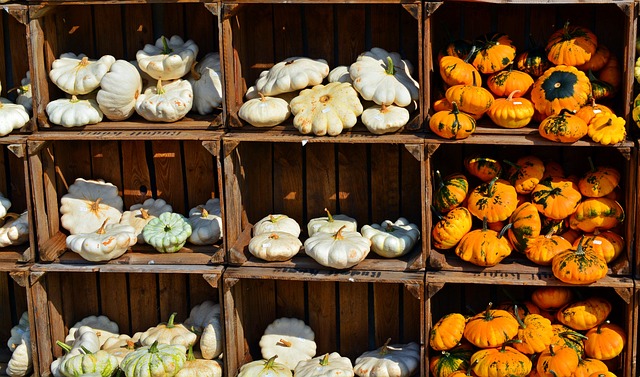Yard waste removal and recycling are pivotal sustainable practices for homeowners and landscapers, effectively reducing greenhouse gas emissions like methane by preventing organic waste from ending up in landfills. These practices not only mitigate environmental impact but also produce valuable compost that can improve soil health and reduce the need for chemical fertilizers. Communities are enhancing these efforts with specialized collection services, and municipalities provide support for on-site composting to cut down on transportation emissions. Innovative composting techniques like aerated static pile (ASP) composting, vermiculture, and in-vessel systems are being adopted nationwide, offering efficient ways to recycle yard waste into nutrient-rich humus. These methods accelerate decomposition, minimize odor, and produce compost in a controlled environment suitable for urban and suburban areas. The implementation of these practices promotes environmental stewardship, supports local ecosystems, and exemplifies sustainable landscaping, contributing to the broader goal of eco-conscious living and zero-waste landscaping. These initiatives demonstrate a collective commitment to reducing waste and its associated environmental footprint, setting a precedent for communities to follow in adopting responsible yard waste management strategies.
Explore the green frontier of yard waste solutions with our comprehensive article. Delve into “Yard Waste Removal and Recycling” as we uncover effective strategies for eco-conscious landscaping. From innovative composting methods to community and municipal initiatives, learn how to transform your garden’s byproducts into valuable resources. Discover the key to sustainability in yard waste management and contribute positively to environmental health.
- Optimizing Yard Waste Removal and Recycling for Eco-Friendly Landscaping
- Innovative Composting Techniques for Yard Waste Management
- Community and Municipal Initiatives in Yard Waste Recycling
Optimizing Yard Waste Removal and Recycling for Eco-Friendly Landscaping

Homeowners and landscapers can significantly enhance the sustainability of their outdoor spaces by adopting efficient yard waste removal and recycling practices. By doing so, they not only contribute to the health of the environment but also foster eco-friendly landscaping. Traditional disposal methods often involve transporting organic materials to landfills where they decompose anaerobically, releasing methane—a potent greenhouse gas. In contrast, recycling yard waste through composting or mulching can transform these wastes into valuable resources that enrich the soil, reduce the need for chemical fertilizers, and sequester carbon.
Communities are increasingly offering specialized yard waste removal services that collect organic matter separate from regular trash collection. These programs often convert yard waste into compost, which local gardens and community green spaces can then use. Additionally, many municipalities provide residents with guidelines and tools for on-site composting, thereby minimizing the carbon footprint associated with transportation. By engaging in these eco-conscious practices, individuals can ensure that their yard waste contributes positively to the ecosystem rather than negatively impacting it. Embracing such sustainable solutions not only aids in waste reduction but also supports the broader goal of promoting eco-friendly landscaping for a healthier planet.
Innovative Composting Techniques for Yard Waste Management

Yard waste, composed of leaves, grass clippings, branches, and other organic matter from garden maintenance, presents a significant volume of material that can be effectively managed through innovative composting techniques. These methods not only contribute to sustainability by recycling nutrients back into the soil but also mitigate the environmental impact associated with traditional yard waste removal practices. Composting transforms organic waste into valuable humus, which enriches the soil and reduces the need for chemical fertilizers.
One such innovative approach is aerated static pile (ASP) composting, which involves periodically turning a stationary compost pile to introduce oxygen, thereby accelerating the decomposition process. This method, when optimized, can handle large volumes of yard waste and produce high-quality compost in a shorter timeframe compared to traditional composting methods. Another technique is vermiculture, or worm composting, which utilizes red wiggler worms to break down organic matter. The resulting compost is rich in nutrients and beneficial for garden soils. Additionally, the implementation of in-vessel composting systems offers a controlled environment that can process yard waste into compost efficiently, regardless of weather conditions, and with minimal odor or leachate production, making it an attractive option for both urban and suburban settings. These sustainable practices for yard waste removal and recycling are key to transforming organic waste into valuable resources while promoting environmental health and supporting local ecosystems.
Community and Municipal Initiatives in Yard Waste Recycling

Communities across the nation are increasingly implementing initiatives to enhance yard waste removal and recycling practices, recognizing the importance of sustainable landscaping. These programs aim to divert organic matter from landfills, where it contributes to methane emissions, to composting facilities where it can be transformed into nutrient-rich soil amendments. Municipalities are setting up dedicated yard waste collection services, often during specific periods of the year when leaves and grass clippings are abundant. These services not only streamline the process for residents but also ensure that organic materials are processed in an environmentally responsible manner.
Furthermore, many local governments are partnering with regional composting facilities to improve yard waste removal and recycling infrastructure. These partnerships facilitate the efficient conversion of yard waste into compost, which can then be returned to the community for use in public gardens, parks, and even in some cases, provided to residents for personal garden use. Such initiatives not only promote soil health and plant growth but also contribute to the reduction of greenhouse gas emissions by providing an alternative to traditional waste disposal methods. These community-driven efforts underscore a commitment to sustainable living and set a precedent for other regions to follow in the pursuit of zero-waste landscaping.
Effective yard waste management is a cornerstone of sustainable landscaping practices, and the solutions outlined in this article provide a clear path forward for communities and homeowners alike. By optimizing yard waste removal and recycling processes, employing innovative composting techniques, and participating in community and municipal initiatives, we can significantly reduce environmental impact while fostering healthy soil and plant life. These strategies not only contribute to the health of our ecosystems but also offer practical benefits, such as nutrient-rich compost for gardens and a reduction in landfill waste. As we continue to refine these methods, it is clear that sustainable yard waste solutions are key to a greener future. Homeowners and municipalities are encouraged to adopt these eco-friendly practices to ensure the ongoing vitality of our natural environment.
